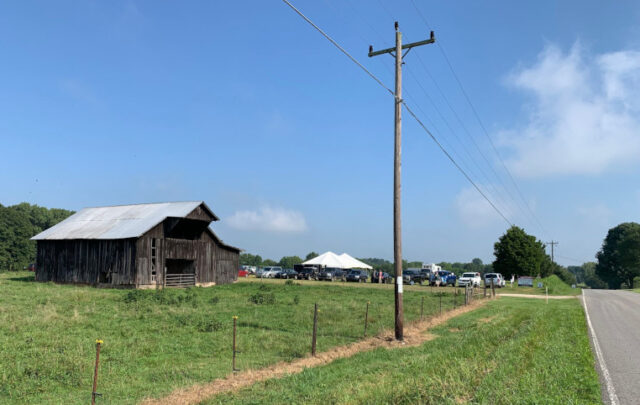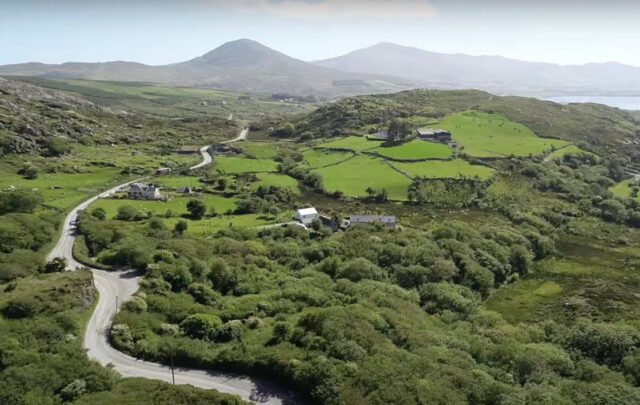My entry into landscape maintenance began as a deep need to do work that was outdoors, among nature. I had always felt a deep kinship with the earth, but as I began my career in the landcare industry and was taught to use pesticides as a way of controlling vegetation, I felt that I was harming the very living beings I regarded so highly.
So, when I first learned about integrated pest management (IPM) in 1986, I was intrigued. IPM is an approach to pest management that prioritizes prevention and monitoring instead of immediately reaching for a chemical to treat a problem, although these days many chemical companies have co-opted the term to encourage pesticide-usage. At the time, I was working in landscape maintenance for Evergreen Hospital in Kirkland, Washington, and I began to employ sustainable practices and reduce pesticide usage. I spent years learning how to restore the natural balance of the ecosystem, working alongside natural predator and prey cycles to ensure a healthy, beautiful, and thriving environment.
This led me to Western Washington University Huxley College of the Environment where I earned a degree in environmental science. I wanted experience in higher education and to deepen my knowledge of the natural environment.
The culmination of years in landscape management and a newly earned environmental degree helped me land a position with Seattle University, an organically and sustainably maintained campus.
Seattle University has been a leader in pesticide-free and organically maintained landscape and land care since 1986. To many in the community, it might seem unfathomable that any campus applies poisons to their grounds, risking harm to both people and the environment. To many in the industry though, it might seem unfathomable to go organic. What about the weeds? What about the costs? What about the labor needs?
Seattle University offers an answer to these concerns. The university has proven that it is possible to have a beautiful, thriving campus without the use of pesticides, with many additional benefits. Implementing organic land care practices requires both a paradigm shift and a shift in practices rooted in this new paradigm. In this way, we can all be champions for clean air, water and soil that supports biodiversity and wildlife.
Starting small
For campuses looking to make the transition to organic land care, I would recommend starting small with a couple of test sites. These spaces should be sizable enough for staff to practice on and achieve success. Those successes will inspire others, while setting the stage for what your campus community can expect in practices and appearances. You may find, being pesticide free and knowing it is safe, the community asks to be more involved and come out to help, as we have experienced here at Seattle University.
Education
On the journey to an organic campus, education is key. To make the necessary paradigm shift, we must educate everyone in the campus community, including professors, students, administrators and neighbors. This will invite investment in caring for our environment, and will create support for the hard work that is being done to create an ecologically sustainable campus.
Most importantly, we must educate the maintenance staff. It is important that they understand and are on board with the transition. Support from experts can help. I suggest having a list on hand of organic garden support resources and phone numbers for staff to call when issues arise. The Organic Landscape Association offers professional community, education, certification, webinars and standards for setting up an organic land care program. Re:wild Your Campus also offers excellent programs to help schools implement organic land care, and resources for educating both maintenance staff and larger school communities.
Building Healthy Soil
Making the transition following seasonal ecological cycles to inform scheduling of practices. It also requires working alongside nature to cultivate healthy soil. This may require balancing soil pH, salinity, or encouraging microorganism activity through the application of good compost or compost teas. This also requires a slight shift in cultural thinking and a reorientation towards physical weed management in the form of digging, pulling, weed barriers, cardboard mulching with tree chips, and plantings to shade and outcompete weed seeds. Grass seed is actually one of the best herbicides; if you plant enough grass in healthy soil it will outcompete any weeds. You can also use mechanical controls like a flame weeder or a steam weeder. The most important thing, however, is making sure you are working with healthy soil.
Once an organic land care program is established, and staff and community are engaged and invested in care for their common home, everyone can enjoy the benefits of a landscape made lush, beautiful, fragrant and habitable for all living beings. The vegetation is naturally green and tree chip compost mulch makes for a fragrant environment. Wildlife is present thriving in all levels of nature. The campus community fills the outdoor space, enjoying the natural organic environment. This may sound utopian, but – as we have shown – it is possible if your university is willing to commit to, invest in, and enjoy a pesticide-free campus.
Seattle University is one of the first schools to achieve Green Grounds Certification and at the Platinum level, the highest available, meaning the entire campus and sports fields are managed 100% organically. Additionally, a campus must integrate native plants, reduce water use, transition to an electric fleet of grounds equipment, and include students in campus management efforts. Re:wild Your Campus is committed to helping any school that wants to take steps towards reducing synthetic pesticide-use. Reach out if you are a school who would like help working towards the Green Grounds Certification!
—
For more information on Seattle University’s organic land care practices, contact Shannon Britton at brittons@seattleu.edu and check out the SU Grounds and Landscaping website at https://www.seattleu.edu/grounds





